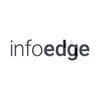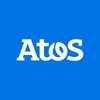

Toyo Engineering




20+ Toyo Engineering Interview Questions and Answers
Q1. What are the steps involved in pump sizing calculations?
Pump sizing calculations involve determining the required pump flow rate, head, and power consumption based on system requirements.
Determine the required flow rate for the system
Calculate the total head required to overcome system resistance
Select a pump that can deliver the required flow rate at the calculated head
Calculate the power consumption of the selected pump
Consider factors such as efficiency, NPSH, and safety margins
Iterate the calculations if necessary to optimize ...read more

Q2. What is the definition of Net Positive Suction Head (NPSH)?
NPSH is the measure of the pressure available to prevent cavitation in a pump.
NPSH is the difference between the pressure at the pump suction and the vapor pressure of the liquid being pumped.
It is important to ensure that NPSH is greater than the NPSH required by the pump to avoid cavitation.
Factors affecting NPSH include pump design, fluid properties, and operating conditions.
NPSH can be calculated using specific formulas based on the pump system parameters.

Q3. What are the criteria for line sizing?
Line sizing criteria include flow rate, pressure drop, velocity, material compatibility, and safety factors.
Flow rate: Determine the maximum flow rate the line needs to handle.
Pressure drop: Calculate the pressure drop along the line to ensure proper operation.
Velocity: Select a velocity range to prevent erosion or excessive noise.
Material compatibility: Choose materials that are compatible with the process fluid.
Safety factors: Consider factors such as future expansion, main...read more

Q4. Do you have any prior experience in using E3D software?
Yes, I have experience using E3D software for designing and modeling mechanical components.
I have used E3D software extensively during my internship at XYZ Engineering firm
I have created 3D models of various mechanical components using E3D software
I am familiar with the features and tools of E3D software for efficient design and analysis

Q5. What is the difference between boring and reaming?
Boring enlarges existing holes while reaming improves the surface finish and accuracy of holes.
Boring is used to enlarge existing holes to a specific diameter, while reaming is used to improve the surface finish and accuracy of holes.
Boring is typically done before reaming in the machining process.
Boring is usually done using a single-point cutting tool, while reaming is done using a multi-edge cutting tool.
Examples: Boring a hole in a cylinder block to fit a piston, and then...read more

Q6. Pipe support spans Compressor supports Loops on the Pipe rack
Pipe support spans are crucial for the safe and efficient operation of piping systems.
Pipe support spans must be designed to prevent excessive deflection and stress on the piping system.
Compressor supports must be designed to handle the weight and vibration of the compressor.
Loops on the pipe rack are used to accommodate thermal expansion and contraction of the piping system.
Proper pipe support design can prevent leaks, equipment damage, and safety hazards.

Q7. Safety valve selection criteria
Safety valve selection criteria
The type of fluid or gas being handled
The pressure and temperature of the system
The flow rate and capacity of the valve
The set pressure and blowdown requirements
The material compatibility with the process fluid
The valve's reliability and maintenance requirements

Q8. Project control requirment documents what?
Project control requirement documents include plans, procedures, and guidelines for managing and monitoring project activities.
Project management plan
Quality management plan
Risk management plan
Change management plan
Configuration management plan
Project procedures and guidelines


Q9. Experience in oil and gas
I have 5 years of experience working in the oil and gas industry, specifically in process engineering roles.
Designed and optimized processes for oil and gas production
Implemented safety measures to ensure compliance with industry regulations
Worked on projects involving refining, transportation, and storage of oil and gas
Collaborated with cross-functional teams to improve efficiency and reduce costs

Q10. Line sizing criteria
Line sizing criteria is the process of selecting the appropriate diameter for a pipeline based on various factors.
Line sizing criteria is based on factors such as flow rate, pressure drop, fluid properties, and velocity limitations.
The selected diameter should ensure that the pressure drop is within acceptable limits and the fluid velocity is not too high or too low.
The type of fluid being transported also plays a role in line sizing criteria. For example, viscous fluids requ...read more

Q11. Details of Procurement Process
Procurement process involves identifying needs, selecting suppliers, negotiating contracts, and managing relationships.
Identify needs and requirements
Research and select potential suppliers
Negotiate terms and conditions
Create and sign contracts
Manage supplier relationships and performance
Monitor and evaluate procurement process effectiveness

Q12. What are the hazardous area classification?
Hazardous area classification is the process of identifying and categorizing areas where explosive atmospheres may occur.
Hazardous areas are classified based on the likelihood of an explosive atmosphere occurring and the duration of its presence.
There are three main factors that contribute to the formation of an explosive atmosphere: the presence of a flammable substance, oxygen, and an ignition source.
The classification system is used to determine the type of equipment and p...read more

Q13. Is code for mode of measurement, Types of joints in flooring, What type of projects previously done and how estimation prepared
The question asks about the code for mode of measurement, types of joints in flooring, and previous projects and estimation preparation.
The code for mode of measurement refers to the standard method used to measure quantities in construction projects.
Types of joints in flooring include butt joints, tongue and groove joints, and expansion joints.
Previous projects can include residential buildings, commercial complexes, or infrastructure projects.
Estimation preparation involves...read more

Q14. Integrity with internal stake holders
Integrity with internal stakeholders is crucial for building trust and maintaining a positive work environment.
Communicate openly and honestly with colleagues and superiors
Respect confidentiality and avoid gossip or spreading rumors
Follow through on commitments and hold yourself accountable
Act with fairness and impartiality in decision-making
Admit mistakes and take responsibility for correcting them
Lead by example and set a high standard for ethical behavior

Q15. How many tons load taken a single weld tick .
The load taken by a single weld tick depends on various factors such as the type of weld, material being welded, and welding technique.
The load taken by a single weld tick can vary depending on the type of weld being used (e.g. fillet weld, groove weld, plug weld).
The material being welded also plays a significant role in determining the load capacity of a single weld tick.
The welding technique and quality of the weld also impact the load-bearing capacity of a single weld tic...read more

Q16. Finish items in building construction
Finish items are the final touches in building construction that make it ready for occupancy.
Painting and finishing walls
Installing flooring and baseboards
Installing light fixtures and switches
Installing plumbing fixtures
Installing cabinetry and countertops
Landscaping and exterior finishing

Q17. What is SFRA test on power transformer?
SFRA test is a diagnostic test performed on power transformers to assess their mechanical and electrical integrity.
SFRA stands for Sweep Frequency Response Analysis.
It is a non-intrusive test that measures the frequency response of a transformer to a swept sinusoidal input signal.
The test helps in identifying mechanical and electrical faults in the transformer windings.
SFRA test results can be compared with baseline measurements to detect changes or abnormalities.
It is useful...read more

Q18. Safety induction for workers
Safety induction is crucial for workers to ensure they understand the safety protocols and procedures in the workplace.
Provide an overview of the safety policies and procedures
Demonstrate the proper use of safety equipment and tools
Highlight potential hazards and how to avoid them
Encourage workers to report any safety concerns or incidents
Ensure workers understand the consequences of not following safety protocols
Conduct regular refresher courses to reinforce safety practices

Q19. Previous challanges and solutions
One of my previous challenges was managing a project with a tight deadline and limited resources.
I prioritized tasks and delegated responsibilities to team members based on their strengths.
I communicated regularly with stakeholders to manage expectations and ensure everyone was on the same page.
I also looked for creative solutions, such as outsourcing certain tasks or finding ways to streamline processes.
Ultimately, we were able to complete the project on time and within budg...read more

Q20. Work Flow of project
Project workflow involves planning, execution, monitoring, and control of project activities.
Project initiation and planning
Project execution and monitoring
Project control and closure
Regular communication and collaboration with team members
Risk management and mitigation
Quality assurance and control
Resource allocation and management

Q21. Reason for switching
Seeking new challenges and opportunities for growth in a different environment.
Desire for new challenges and opportunities
Seeking professional growth and development
Interest in exploring different work environment





Top HR Questions asked in Toyo Engineering
Interview Process at Toyo Engineering

Top Interview Questions from Similar Companies









Reviews
Interviews
Salaries
Users/Month












